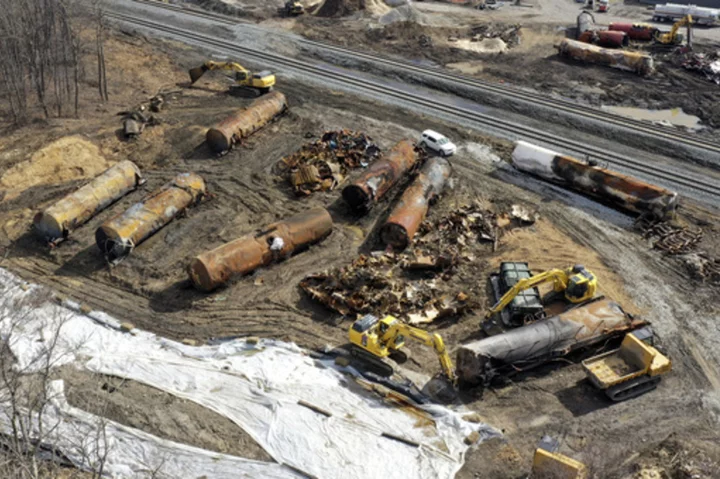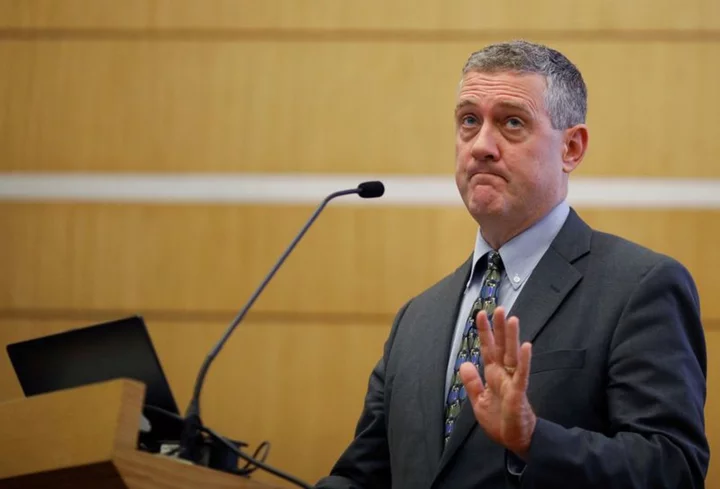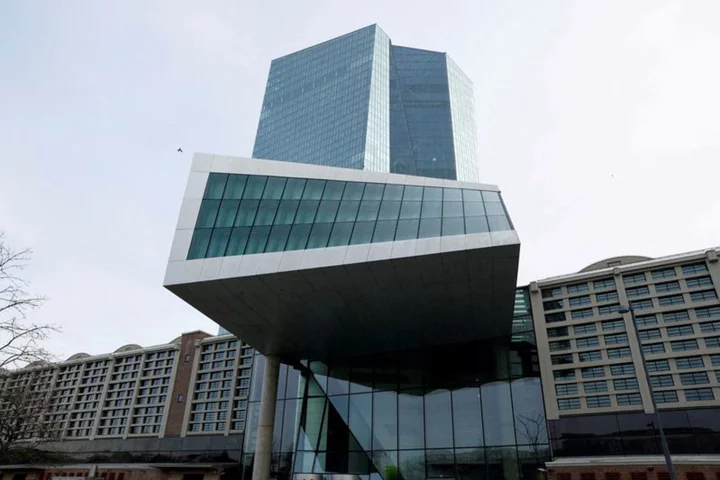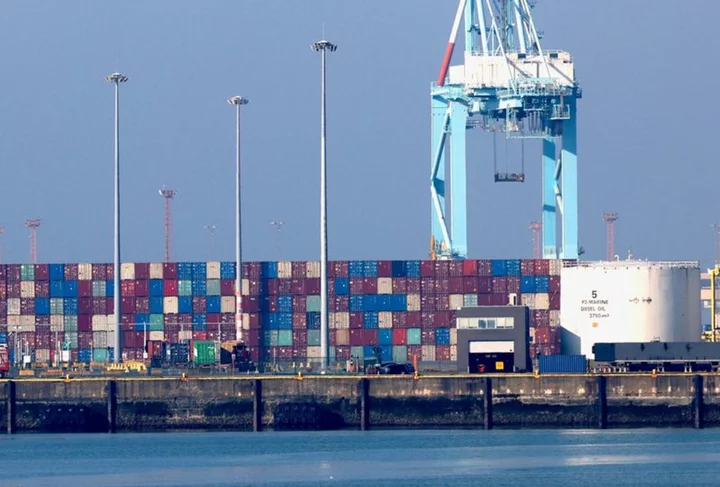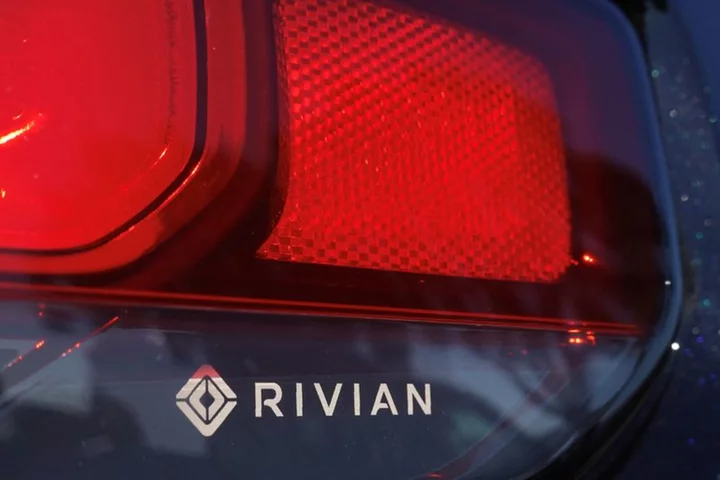The union that represents locomotive engineers says a Thursday night coal train derailment in Virginia is renewing questions about Norfolk Southern's safety practices.
The derailment happened coming down out of the Appalachian Mountains near Elliston about 20 miles (32.19 kilometers) outside Roanoke. Fortunately, it involved coal cars and not hazardous materials like those that generated a huge plume of black smoke and forced evacuations in the eastern Ohio town of East Palestine after a different Norfolk Southern train derailed in February. That Ohio derailment triggered concerns nationwide about railroad safety and prompted calls for reforms from members of Congress and regulators.
“We’re just lucky right now that it’s coal. If it had been ethanol or LP gas or chlorine or anything like that, it could have been a totally different situation," said Randy Fannon, who leads the Brotherhood of Locomotive Engineers and Trainmen union's safety task force.
Nineteen cars on the Virginia coal train derailed around 7:45 p.m. Thursday but remained upright and none of the coal spilled.
Before the derailment, the crew received a critical alarm from a trackside detector that a wheel bearing was overheating. But unlike in the East Palestine derailment where the crew received little warning, the crew was able to safely stop the Virginia train after it was alerted to the potential hazard.
The train's conductor found the railcar that triggered the alarm and confirmed the bearing was overheating. But a spokesman for the railroad said all the components appeared to be intact during a visual inspection.
Federal Railroad Administration spokesman Warren Flateau said the railroad decided to try and move the train to a siding, where the crew could safely set out the car with the overheating bearing without blocking the main track. But the train derailed before it reached the siding.
National Transportation Safety Board officials said late Friday they would investigate the Virginia derailment. While union officials and the railroads involved in an NTSB investigation aren’t allowed to speak publicly before that agency releases its findings, Fannon discussed the details of the crash Friday afternoon when the FRA was still leading the investigation. The NTSB had not taken the lead at that time.
Fannon said someone at the railroad’s headquarters in Atlanta who was working on the “hot box detector desk” told the crew to go ahead and move the train 8 miles (12.87 kilometers) down the track. The crew told union officials that they weren't comfortable with moving the train at the track speed of roughly 40 mph, so they kept the speed to around 20 mph. But the train still derailed.
Spokesman Tom Crosson said Norfolk Southern will use this derailment to help inform changes it is making to improve safety.
“This derailment should never have happened. It is unacceptable,” Crosson said. "We are working to achieve our goal of being the gold standard for safety in the railroad industry, and this incident strengthens our resolve."
Both the FRA and the NTSB said they were investigating Norfolk Southern's safety practices following the East Palestine derailment and several others in the past couple years.
The NTSB is doing a detailed investigation to determine everything that contributed to the East Palestine derailment, but investigators said in their preliminary report that an overheating bearing on a rail car carrying plastic pellets likely caused the derailment. The resulting fire burned for days as several cars carrying hazardous materials spilled their contents. Then officials decided to blow open five vinyl chloride cars and burn that chemical because they were worried those tank cars might explode.
“NS is still in the spotlight and they’re going to remain that way until they make some changes," Fannon said.
In years past before Norfolk Southern began overhauling its operations in 2019 and making widespread job cuts, Fannon said the railroad typically would have sent a mechanical inspector to examine the car after an overheating bearing was found to determine if it was safe to move the train. That doesn't happen anymore after all the cuts to the ranks of inspectors.
“I think the key to this is no qualified mechanical person inspected it,” Fannon said.
Norfolk Southern, like all the major freight railroads, has streamlined its operations over the past several years to reduce costs by relying more on running fewer, longer trains so it doesn't need as many crews or locomotives. The Brotherhood of Locomotive Engineers and Trainmen and the other rail unions have said the changes make railroads riskier, spreading employees thin and making it difficult to take the time to properly inspect cars or complete needed preventative maintenance.
The railroads have defended their safety record.
Railroad officials have said they don't believe the cuts jeopardized safety, and they emphasize that they continue to meet the minimum federal standards. Norfolk Southern's CEO Alan Shaw has said he believes NS is a safe railroad and that he is committed to improving that.

